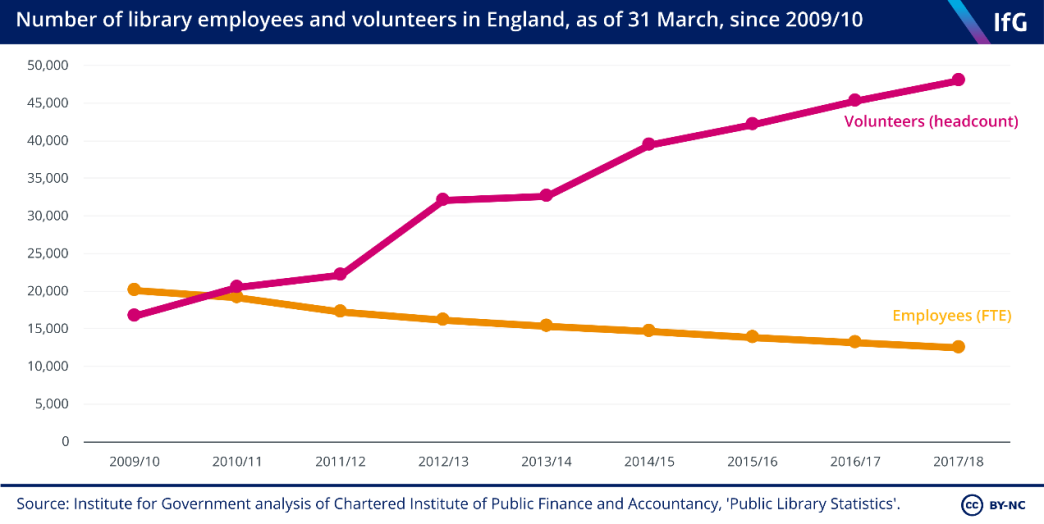Five things you should know before you vote in the English local elections
From bin collection and filling potholes to social care, local councils provide vital services.
From bin collection and filling potholes to social care, local councils provide vital services. Graham Atkins explains what you need to know before local elections on 2 May.
1. Your council will probably have less money to spend in the coming years
The amount of money local authorities have to spend has fallen by almost 30% since 2010/11. This is despite rising pressure on vital – and expensive – social care. Since 2009/10, the number of looked-after children has risen 17%, and the number of people aged 85+ has risen 19%.
Until the Government conducts a spending review, councils cannot know what their budgets will look like after March next year. But given the money already committed to the NHS, defence, and international aid, there is likely to be continued cuts to council grants from central government.
If the Government chose to reduce all spending outside of the NHS, defence, and international aid at the same rate, councils would face annual cuts to central grants of 0.4% per year. Unless topped up locally – through, for example, increases in council tax – cuts to central grants will mean that councils will have to deliver more for less.
2. Local services will increasingly be paid for by your local taxes
If your council plans to spend more money then it will largely have to raise the money itself, which will mean higher council tax bills for many.
Over the last eight years, the amount of money local authorities receive from central government has fallen by 49%, according to the National Audit Office. In this context, it is not surprising that 97% of councils plan to increase their council tax this year.
3. Your councillors still face difficult questions on what to prioritise
If a councillor is promising to keep a local library open, or keep council tax flat, are they making clear the trade-offs they will be willing to make to achieve that promise?
To manage with tighter budgets, councils have prioritised. That’s particularly true in English councils which are responsible for social care. Those councils have largely protected social care spending, while heavily cutting spending on services that affect the environment in which people live – from bin collection and food safety to libraries and planning. Spending on libraries, trading standards, and planning, for example, have all fallen by more than a third since 2009/10.
Our Performance Tracker analysis (produced in partnership with CIPFA) suggests that the impact on those services – while not insignificant – has not mirrored the size of the spending cuts. Councils have found new ways of doing things, and squeezed efficiencies out of the private and voluntary organisations that are contracted to provide many of their services.
But councillors’ room for manoeuvre is not infinite. There are pressures building up – from rising care worker vacancies to care home and homecare company financial instability – which suggest that efficiencies cannot be pushed much further. This is especially acute in adult social care.
Tough choices lie ahead, and it is important that local politicians are upfront about that.
4. Your councillors will probably ask you to do more
Rather than close services down entirely, local authorities are increasingly asking for community support to keep services going. In libraries, the number of volunteers overtook the number of paid staff in 2010/11 – and the gap is continuing to widen.

5. Your councillors will probably ask you to pay more for specific services
Another way for local authorities to try to balance their books is by raising fees – such as library late fees – and charges for services such as collecting garden waste, parking, and providing additional help with planning applications. In the six neighbourhood services our Performance Tracker covers, council income from sales, fees and charges rose 1.7 percentage points over the last six years.
The picture varies significantly between services. In planning, income from sales, fees, and charges now makes up 54% of council spending, up from 36% in 2009/10, with 97% of councils plan to increase charges this year, according to a recent council survey.
Newly-elected councillors will have to make tricky trade-offs, and manage tight financial situations. This Thursday is your opportunity to say who you want to make these decisions on your behalf.
- Supporting document
- Performance Tracker 2018 web.pdf (PDF, 2.02 MB)
- Topic
- Public services
- Keywords
- Local elections Local government
- Publisher
- Institute for Government